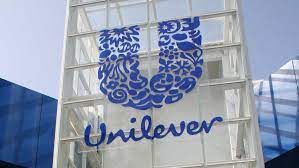Unilever offloads ekaterra tea business for €4.5bn to CVC Capital

An avid reader, analytical writer and consistent content creator with several enlightening articles and reports. He is currently a journalist , Commodities, Agriculture and Technology at business a.m. newspaper. Email: amugedavido@gmail.com. Tel: +234 706 930 4947
November 19, 2021790 views0 comments
British consumer goods group Unilever said it is selling its global tea business, ekaterra, which includes Lipton and PG Tips brand to private equity and investment advisory firm, CVC Capital Partners VIII for €4.5 billion on a cash-free, debt-free basis, following a deal struck to this effect.
 The deal, according to a statement by Alan Jope, Unilever’s chief executive, comes as the company seeks higher growth opportunities elsewhere. The agreement with CVC also follows a review of its tea business, which had over the years suffered a drop in sales as demand from younger consumers’ declined due to consumption alternatives offered by delicious herbal products and coffee.
The deal, according to a statement by Alan Jope, Unilever’s chief executive, comes as the company seeks higher growth opportunities elsewhere. The agreement with CVC also follows a review of its tea business, which had over the years suffered a drop in sales as demand from younger consumers’ declined due to consumption alternatives offered by delicious herbal products and coffee.
“Our decision to sell ekaterra demonstrates further progress in delivering against our plans,” Jope explained.
The transaction which is set to complete in the second half of 2022, subject to completion of works council consultation processes and the receipt of certain regulatory approvals, excludes Unilever’s tea business in India, Nepal and Indonesia, as well as its interests in the Pepsi Lipton ready-to-drink tea joint ventures and associated distribution businesses.
Read Also:
John Davison, chief executive of ekaterra, described the tea business brand as a strong business with positive momentum, noting that it has an exciting future ahead under the new ownership of CVC.
“We look forward to the next stage of our journey as the world’s leading tea business,” he added.
Commenting on the deal, Pev Hooper, managing partner at CVC Capital Partners, noted that Ekaterra is a great business, built on strong foundations of leading brands and a purpose driven approach to its products, people and communities.
According to him, the ekaterra tea division business, with a portfolio of 34 brands, was well positioned in an attractive market to accelerate its future growth, and to lead the category’s sustainable development.
